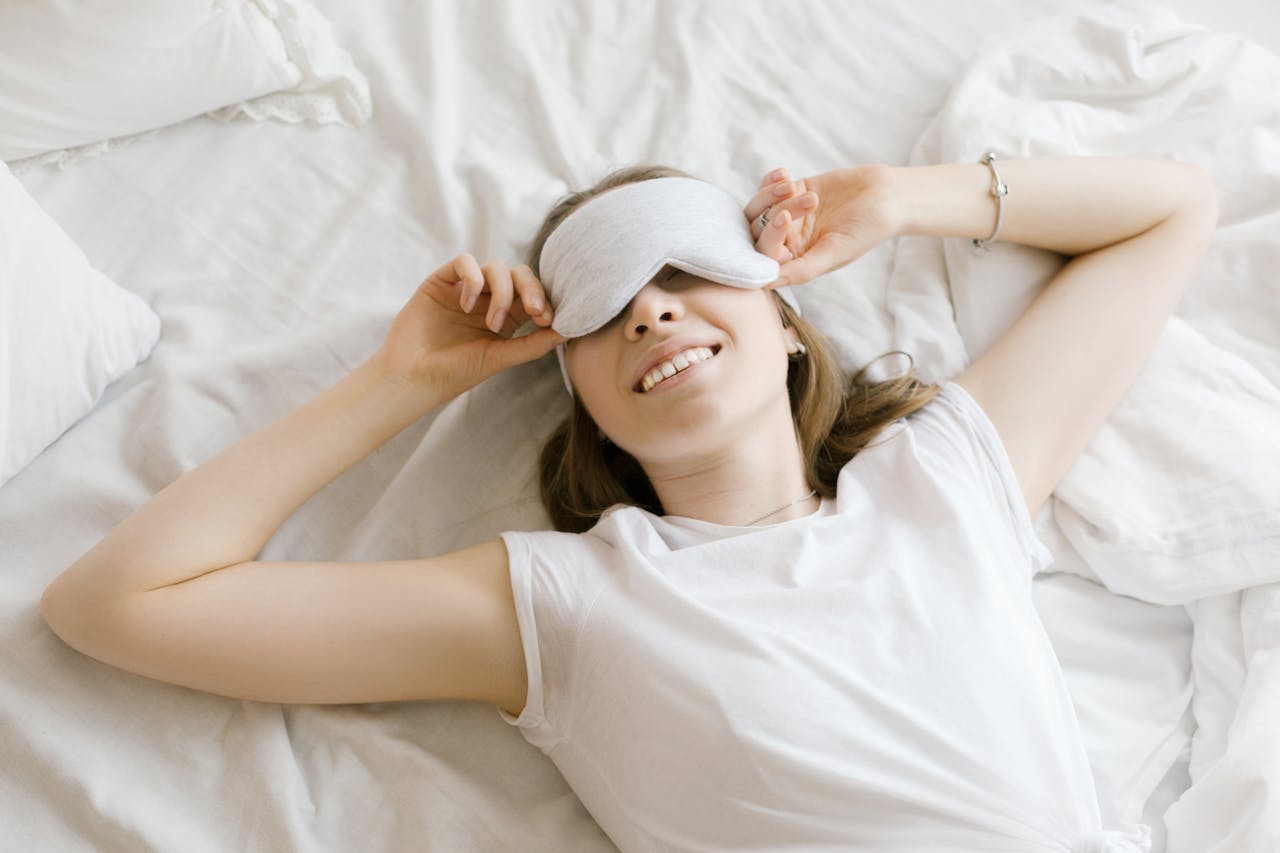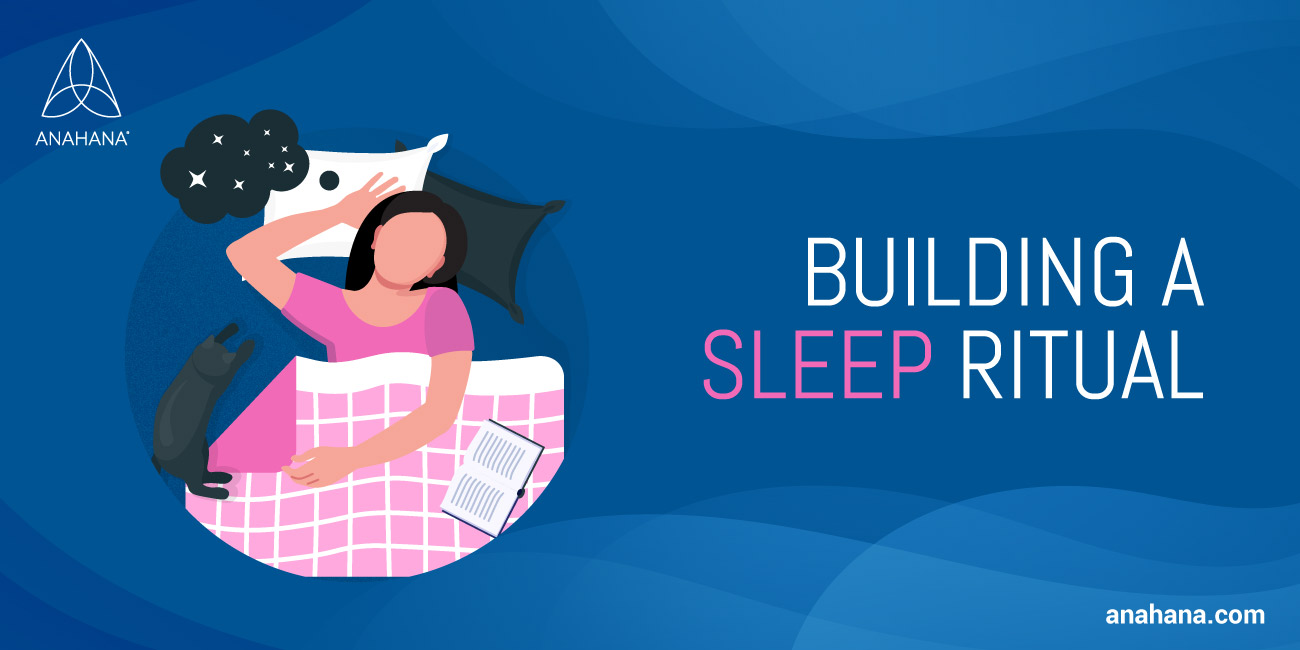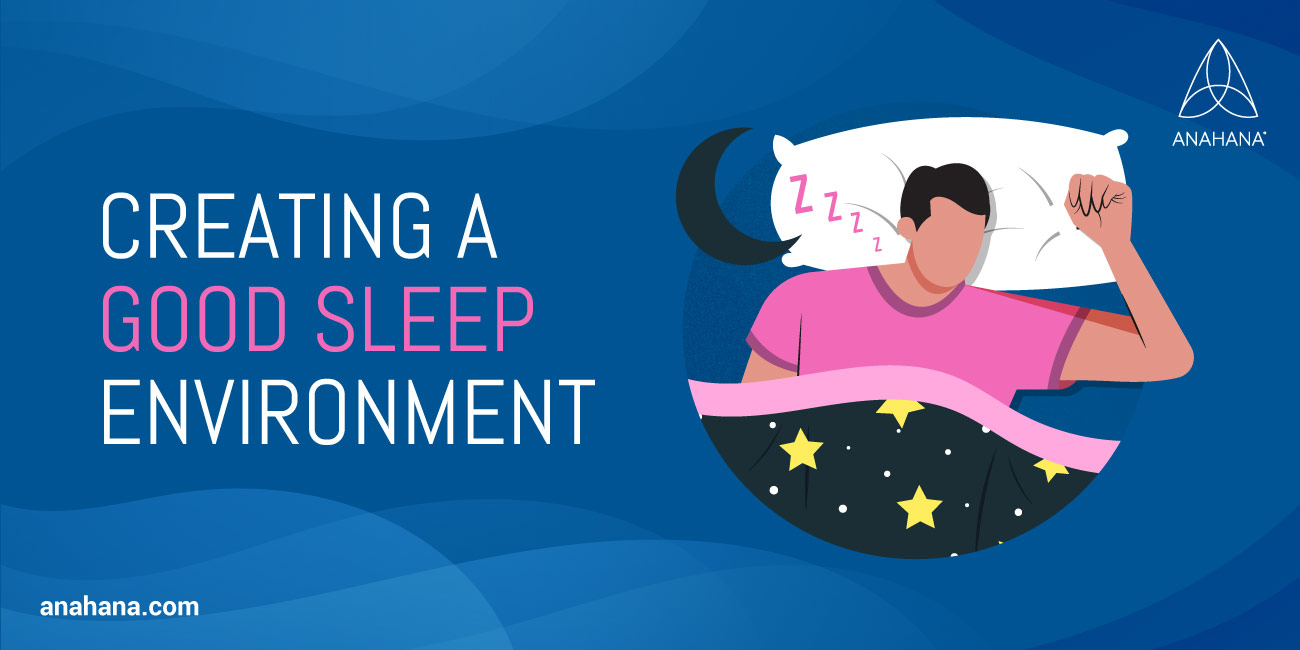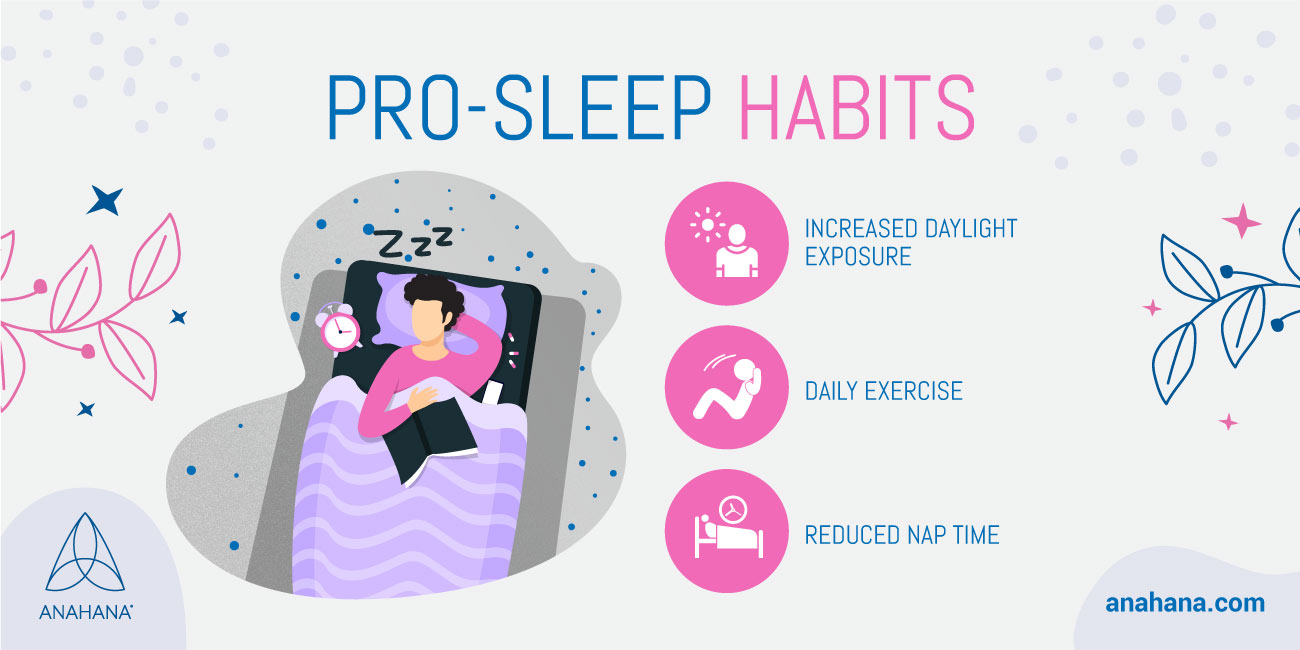
Table of Contents
People spend a third of their lives sleeping, so getting good quality sleep is important. Research has been done to determine ways to get better sleep to avoid developing sleep disorders or other health complications.
Key Takeaways
- A consistent sleep schedule and healthy sleep habits are essential for better sleep and avoiding poor sleep.
- Create a calming routine with soothing music to enhance quality sleep.
- Aim for at least seven hours of sleep to ensure a good night's rest.
- Optimize your environment for a better night's sleep, avoiding caffeine and alcohol.
- Addressing sleep disorders is crucial for improving nighttime sleep and achieving enough quality sleep.
- Proper sleep hygiene can prevent factors that affect sleep.
This blog will discuss tips on getting a better night’s sleep and waking up feeling refreshed and well-rested.
Much research has proven that a good night’s sleep can go a long way regarding physical and mental health. A lack of sleep, or even poor sleep quality, is not unfamiliar to a large population and can lead to many short-term and long-term consequences.
Various sleep hygiene tips have been discussed to help improve sleep quality and help those who have trouble sleeping; sleep schedules, sleep environment, and daytime habits are just a few categories that can help you get better sleep.
Stick to a Sleep Schedule
Busy schedules, social events, and other various commitments can make it very difficult to establish and maintain a sleep schedule; going to sleep at the same time every night and waking up at the same time every morning can be quite challenging, especially on the weekends when all you want to do is sleep in! The benefits, however, outweigh the disadvantages in this situation. An irregular bedtime schedule can be detrimental to your sleep schedule.
Humans have an internal clock that regulates sleep-wake cycles, called the circadian rhythm. It is said that a consistent sleep-wake schedule can strengthen this circadian rhythm and lead to better sleep. Even one night of going to sleep a couple of hours later can negatively affect your sleep and make it harder to fall asleep the following night.
To stick to a sleep schedule, first look at the time you need to wake up at on a daily basis; for example, if you need to wake up at 7 am for work during the week, this should be the time that you set your alarm for every day, weekends included. To ensure you get the full recommended amount of sleep, 7 hours or more for adults, count backward from your wake-up time to determine when you should fall asleep. Allow yourself an hour before that for your bedtime routine and to get comfortable.
Although difficult, especially on weekends, waking up simultaneously every day will make you feel well-rested and refreshed in the long run by providing better sleep quality and a strong circadian rhythm. It also enhances daytime functioning, making you your best self during waking hours.
Have a Sleep Ritual
 A sleep ritual, or bedtime routine, is a series of events you can perform before falling asleep to promote relaxation, peace of mind, and overall sleepiness. This routine has been shown to help those with trouble falling asleep and, in general, help you wind down at the end of a long, busy day.
A sleep ritual, or bedtime routine, is a series of events you can perform before falling asleep to promote relaxation, peace of mind, and overall sleepiness. This routine has been shown to help those with trouble falling asleep and, in general, help you wind down at the end of a long, busy day.
These routines can include activities ranging from taking a warm bath to dedicating an hour to reading your favorite book. It is, however, important that these activities be enjoyable to you to avoid bedtime procrastination. A bedtime ritual composed of tasks like walking the dog, flossing, and cleaning up the kitchen before retiring to the bedroom is not exactly relaxing and can lead to putting off bedtime. Not to say that these tasks aren’t important and shouldn’t be done, but these should not be the activities that are intended to relax you.
It has been shown that many people suffer from procrastination at bedtime due to unpleasant tasks that must be completed beforehand. A sleep ritual can prevent your aversion to sleep and actually excite you to crawl into bed at the end of the day.
Developing a sleep ritual is just trial and error; try activities that calm you down, like meditation, reading, warm baths or showers, listening to calming music, etc. Take a mental note of which activities are most enjoyable and seem to calm and relax you. Once your sleep ritual has been established, stick to it; doing so will not only create the habit but will also trigger your brain to induce sleep once these activities are completed.
Have a Good Sleep Environment
 The place in which you sleep greatly impacts your ability to fall and stay asleep and the overall quality of rest. Your bedroom should be your sanctuary and a place where you feel most at ease and peace. Having distracting lights and noises is something that can hugely affect your sleep.
The place in which you sleep greatly impacts your ability to fall and stay asleep and the overall quality of rest. Your bedroom should be your sanctuary and a place where you feel most at ease and peace. Having distracting lights and noises is something that can hugely affect your sleep.
Lights
Bright light from outside or blue light from electronic devices can keep you awake past bedtime and wake you up earlier than intended. Having good quality curtains on your windows can prevent natural light or streetlights from peaking in and disrupting your sleep; if this is not something attainable, a sleep mask is another tool that can be used to block light and ensure a dark environment, especially when the morning sunlight starts to shine.
Blue light emitted from electronic devices like phones, televisions, or even smart watches can make you feel more awake at bedtime and delay falling asleep. In a society where we rely largely on these devices for communication, especially as an alarm clock to wake us up, it can be difficult to go without them in the bedroom. However, keeping these electronic devices in a separate room and avoiding using them hours before bed can ensure you relax before bedtime and get the best sleep possible.
Watching TV before bed has been normalized in today’s society, but in reality, it has harmful effects on our sleep and overall well-being; delaying sleep onset and changing sleep patterns are just the start of the consequences that this activity can have. Choosing a more relaxing activity to wind down at the end of the day is much more beneficial.
Temperature
Temperature plays a huge role in sleep quality; it is common knowledge that sleeping in a room that is too hot or cold is almost impossible. Keeping your bedroom at a temperature of 65-68 degrees Fahrenheit is ideal for falling asleep and maintaining a good body temperature throughout the night.
This can be quite difficult with the changing seasons; a low-noise fan can keep your room cool during hot nights, and extra blankets or even heated blankets can help warm you up in the cold winter.
Noise
Sleeping with noise, whether a snoring partner or pet, traffic outside, or loud distractions, can be difficult and frustrating. Keeping noise to a minimum can help with falling asleep easier and staying asleep longer. Avoid falling asleep with a television on or any non-soothing music playing.
It is understandable that sometimes noise is inevitable and can not be quieted; using a white-noise machine or any white noise, such as a fan, is a good way to drown out any noise. Earplugs or headphones playing soothing bedtime music are other alternatives to ensure a quiet sleep environment.
A Comfortable Bed
An obvious tip for sleeping better is to have a comfortable bed, although it is common for people to have poor-quality mattresses and pillows. Investing in a good mattress that is right for you and good quality pillows can help improve sleep quality and help avoid any muscle pain that comes with an uncomfortable bed. Although pricey, changing to good-quality sleep accessories is a great long-term investment.
Pro-sleep Habits to Incorporate During the Day
 Getting a good night’s rest depends on the habits we incorporate right before bedtime or during the night and the activities and habits we complete throughout our day. Developing positive sleep habits like getting a daily dose of vitamin D and physical activity during the day can promote and ultimately lead to good sleep at night.
Getting a good night’s rest depends on the habits we incorporate right before bedtime or during the night and the activities and habits we complete throughout our day. Developing positive sleep habits like getting a daily dose of vitamin D and physical activity during the day can promote and ultimately lead to good sleep at night.
Increase Light Exposure During the Day.
One way to build a strong circadian rhythm is to ensure you get some daily sunlight exposure. Our internal clocks work with the exposure of light and darkness; our minds tell us it is time to sleep when it is dark out, which is why you typically feel tired earlier in the winter as the sun sets earlier in the evening. By getting light exposure during the day, you tell your brain it is time to be awake. Staying indoors with closed blinds can throw off your internal clock, causing daytime sleepiness and an unorganized sleep-wake cycle.
Exercise During the Day
Healthy habits like regular exercise are great for optimal health and heart disease prevention. Still, it has other health benefits, such as promoting healthy sleep.
Research has proven that getting daily exercise promotes higher sleep quality, shortened sleep onset latency, fewer awakenings during the night, help you fall asleep faster, causes less tiredness during the day and overall more daytime energy and increased concentration during waking hours. In addition, it has been proven to lower anxiety levels and depressive symptoms, an added bonus! Although it is important to exercise during the day, it is typically recommended that this be done in the morning or early afternoon to prevent sleep deprivation that same night.
Reduce and Limit Long Daytime Naps
Most people take naps during the day to combat sleepiness during the day and to get a boost. Although helpful at the moment, naps can be harmful to your overall sleep health.
A nap any longer than 20 minutes can cause difficulty sleeping at night and throw off your internal clock.
It can be hard to avoid naps when the early afternoon arrives, so if you have to take a quick nap, try to avoid anything longer than 20 minutes, all while ensuring this is done earlier in the day rather than late in the evening. Doing this will ensure you’re getting a good night’s rest and not encountering trouble sleeping.
Eating and Foods to Avoid Before Bed
Believe it or not, the foods and drinks we consume during the day, specifically later in the afternoon, greatly impact our sleep quality and how fast we fall asleep at the end of the day. Being mindful of what we consume during the second half of the day is an easy way to improve sleep and avoid any sleep problems.
Alcohol and Caffeine
Although alcohol is a central nervous system depressant and typically makes you feel drowsy, it has many effects on the brain that go unnoticed by any regular individual. Alcohol lowers sleep quality and affects its duration.
People who consume excessive alcohol before going to sleep are at risk for insomnia symptoms, like trouble falling asleep and finding it difficult to stay asleep, as well as worsening sleep apnea symptoms. This is why it is important to avoid alcohol before bed. Although relaxing, not having that one glass of wine to wind you down in the evening can help you sleep better at night.
Caffeine, unline alcohol, has a stimulating effect that keeps you awake if taken too late. Coffee, tea and even chocolate are all popular things that contain large amounts of caffeine. Many people will try to overcome a midday slump by consuming coffee. This is not necessarily harmful, but be wary of the time when doing this; taking a cup of coffee too late in the day will disrupt sleep and prevent a good night’s sleep. Try to stick to a cup of coffee in the morning to start your day and wake you up.
Don’t Eat or Drink Right Before Bed
Not only should you avoid drinking alcohol and coffee before bed, but having a big meal or a lot of liquids right before bedtime can make it harder to fall asleep. Eating a big meal, especially one full of fats and spice, will cause you to lie awake digesting all that food.
Avoid eating your dinner too late in the evening to help you fall asleep faster. If you need a late-night snack, try sticking to a light and healthy snack that will ultimately be easier on the stomach.
Relieving Stress Before Bed
Stress can often cause you to lay awake at night, thinking about everything that worries you.
This can cause a delay in falling asleep, leading to poor sleep. It is important to forget your worries when you lie down to sleep at the end of the day. Being easier said than done, There are many ways to put the day’s worries behind you; journaling, deep breathing exercises, sleep meditation, and many more.
If you are having trouble falling asleep, focusing on relaxing rather than falling asleep might be easier. This can be a much more easygoing mentality and take off the pressure of needing to get to sleep immediately. Focusing on your “happy place” can be a good relaxing way.
With tons of different resources online, trying different deep breathing techniques, guided meditations, or relaxation techniques can ease you into sleep without having to try too hard. Focusing on something like your breathing patterns and progressive muscle relaxation can help you put your stress behind you and focus on getting some well-deserved rest.
Sleep Medicine
Sometimes our body does not want to cooperate with us, even after tiring out every resource. When this happens, it is a good idea to consult a health professional to rule out any sleep disorders and get professional advice on a sleep medicine that would benefit you.
Some examples of sleep medicines that can give you the extra help you need to sleep better at night include melatonin, warm milk, lavender, magnesium, valerian root, and many more.
Frequently Asked Questions
How long should it take to fall asleep?
It should take 15 to 20 minutes of lying down to fall asleep. Any longer than this could indicate a sleep problem. If it is taking you significantly longer than that, try one or a few of the tips listed above, as sometimes a quick and easy fix will do the trick!
How long can I nap during the day?
Many people take naps to fight daytime sleepiness and promote productivity and concentration; however, being careless can be harmful and affect sleep quality. It is recommended to limit naps to 20 minutes if you find it necessary to do so.
How much physical activity should I get during the day to help improve my sleep?
The good news is that it doesn’t take hours of high-intensity training to see the effects of this at night. A moderate 30-minute workout is all it takes to improve sleep at night and see the benefits of sleep.
References
Aversive bedtime routines as a precursor to bedtime procrastination
Changing your sleep habits: MedlinePlus
Disclaimer
The contents of this article are provided for informational purposes only and are not intended to substitute for professional medical advice, diagnosis, or treatment. It is always recommended to consult with a qualified healthcare provider before making any health-related changes or if you have any questions or concerns about your health. Anahana is not liable for any errors, omissions, or consequences that may occur from using the information provided.

By: Clint Johnson
Clint is the driving force and founder of Anahana. Clint teaches Yoga, Pilates, mindful breathing, and meditation, catering to a global community of students and teachers.